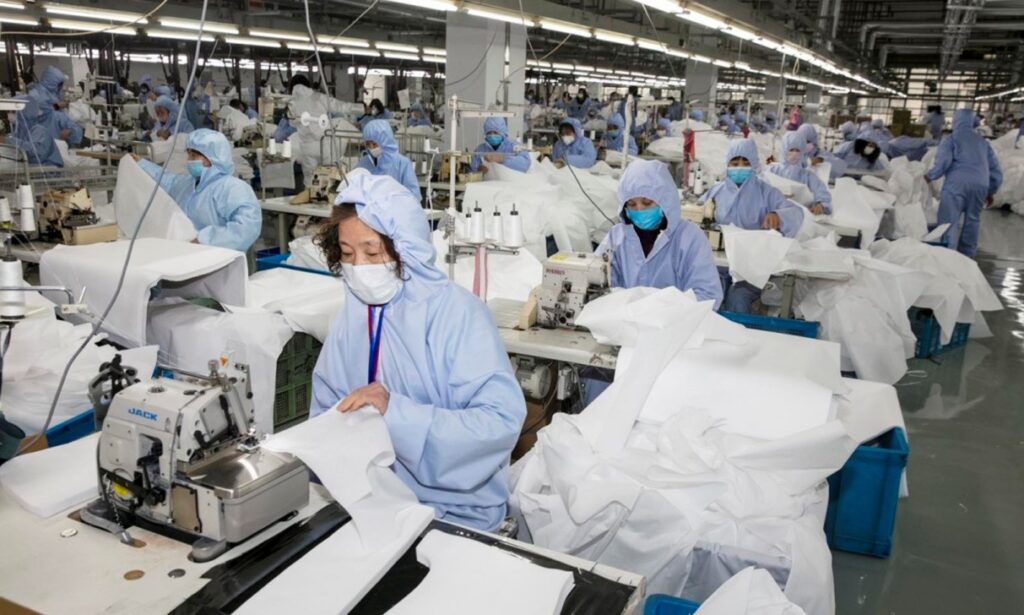Plagued by coronavirus, can the RMG industry pull together?
Recently, I wrote about how coronavirus (COVID-19), which is now on the verge of becoming a global pandemic, has provided a wake-up call for Bangladesh and its RMG industry. An over-dependence on China has left many manufacturers in Bangladesh (as well as our rivals) exposed due to a lack of raw materials and intermediaries for garment and textile production.
In only a few days since I wrote that article, the situation with regard to COVID-19 has become much worse. I will outline here a few ways in which RMG manufacturers in Bangladesh are being impacted.
Firstly, many of our buyers are facing challenges of their own (of which more below). For this reason, they are writing to their suppliers in Bangladesh asking if payment for products can be delayed—by up to 30 days and beyond in some cases. This is a real challenge, and will prove particularly troublesome for SMEs with limited cash reserves and poor cashflow generally. For those who are running a tight ship, how will they pay their staff on time? As ever, factories—suppliers—are proving the fall guy in an industry-wide problem.
The second issue is that the holidays associated with the Chinese New Year, including in Hong Kong, were extended by around 20 days due to the outbreak of COVID-19. The fact that payments from customers via Hong Kong had already been delayed, and the lack of ability to get into work as outlined above have only made a bad problem even worse and extended payment delays further.
Moreover, many Bangladeshi apparel manufacturers have opened back-to-back Letters of Credit for fabrics and raw materials with Chinese companies. Because of COVID-19, many Chinese suppliers have not been able to deliver these fabrics or raw materials. However, in this scenario, Bangladeshi suppliers are becoming the defaulter to the banks as most Letters of Credit are irrecoverable once the importer has sent them.
All of the above factors are hitting Bangladeshi RMG suppliers hard in the pocket. Against such a backdrop, the question that needs to be asked is: if suppliers are experiencing major delays in payment, or are not even receiving goods which they are now financially liable for, how can they be expected to pay their workers’ salary on time?
All of us in the supply chain recognise the huge challenges that COVID-19 represents and understand that it is a human tragedy first and foremost. But it also has huge business ramifications.
There are also broader, long-term economic factors to consider. As well as already being squeezed hard financially due to the above factors, there are potentially dark clouds on the horizon for our industry. In Europe, our largest market, we are seeing massively reduced footfall on the high streets as people are being advised by governments to isolate themselves and minimise social contact. Less people out and about means less shopping, and there can be no question now that consumer goods including apparel are going to be hit by COVID-19.
McKinsey has issued a briefing suggesting that consumer goods will not be impacted as badly as services since they will only suffer a “delayed spend.” In other words, people will put off purchases they might make now to a later date. But the uncertainty of the current situation means we simply do not know what that date might be. Spring? Summer? This is a new disease and the world is in new territory.
It is for these reasons that I believe Bangladesh’s RMG industry is facing a once-in-a-generation challenge. The closest we have had to anything like this in recent years is the 2008 financial crash which placed a liquidity squeeze on the global economy. That’s how serious this is, economically at least.
I say all of this not to be a scaremonger, rather, to say that now is the time we as a country—and RMG as an industry—should pull together like never before. The government needs to provide policy support to the RMG manufacturing community at this challenging time. It should consider working closely with industry stakeholders to introduce short-term financial relief mechanisms for the directly impacted as well as supporting enterprises. I believe that banking supports such as zero-interest loans to help factories with cashflow problems and the option to allow the garment factories to reschedule their loans without penalty can help the industry from steep falling. Actions should be taken sooner rather than later to ensure factories are best placed to weather the storm. It is hoped that our policymakers will sit down carefully to develop innovative, intelligent solutions which will enable the manufacturers to face head-on one of the biggest challenges for a generation.
Most importantly, it is not an isolated crisis for Bangladesh, rather a critical time for the entire world. So the time demands greater collaboration. Global apparel stakeholders need to come up with a harmonised strategy to respond to the epidemic outbreak of COVID-19.
In this tumultuous time for business, neither the manufacturers nor the buyers seem to be spared from the fallout. Clearly, the epidemic has put us into a situation where strengthening relationship between buyers and suppliers can only help each other to face the blow. Responsible purchasing practices are needed now more than any time before.
Mostafiz Uddin is the Managing Director of Denim Expert Limited. He is also the Founder and CEO of Bangladesh Denim Expo and Bangladesh Apparel Exchange (BAE). Email: mostafiz@denimexpert.com

